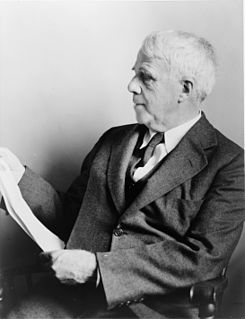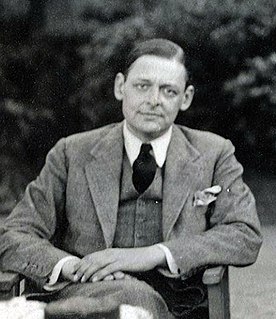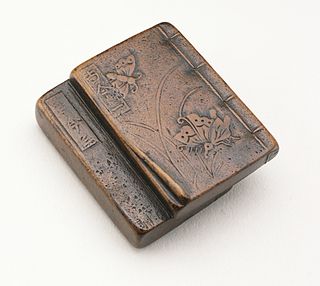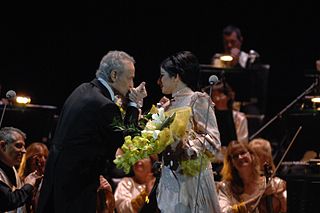Works
This section is empty.You can help by adding to it.(July 2010) |
| |||
|---|---|---|---|
This section is empty.You can help by adding to it.(July 2010) |
This section is empty.You can help by adding to it.(July 2010) |
| This year in poetry article is a stub. You can help Wikipedia by expanding it. |

An epic poem, epic, epos, or epopee is a lengthy narrative poem, ordinarily involving a time beyond living memory in which occurred the extraordinary doings of the extraordinary men and women who, in dealings with the gods or other superhuman forces, gave shape to the moral universe for their descendants, the poet and his audience, to understand themselves as a people or nation.
In poetry, metre (British) or meter is the basic rhythmic structure of a verse or lines in verse. Many traditional verse forms prescribe a specific verse metre, or a certain set of metres alternating in a particular order. The study and the actual use of metres and forms of versification are both known as prosody.

Poetry is a form of literature that uses aesthetic and often rhythmic qualities of language—such as phonaesthetics, sound symbolism, and metre—to evoke meanings in addition to, or in place of, the prosaic ostensible meaning.

Robert Lee Frost was an American poet. His work was initially published in England before it was published in America. Known for his realistic depictions of rural life and his command of American colloquial speech, Frost frequently wrote about settings from rural life in New England in the early twentieth century, using them to examine complex social and philosophical themes.

Sappho was an Archaic Greek poet from the island of Lesbos. Sappho is known for her lyric poetry, written to be sung while accompanied by a lyre. In ancient times, Sappho was widely regarded as one of the greatest lyric poets and was given names such as the "Tenth Muse" and "The Poetess". Most of Sappho's poetry is now lost, and what is extant has mostly survived in fragmentary form; two notable exceptions are the "Ode to Aphrodite" and the Tithonus poem. As well as lyric poetry, ancient commentators claimed that Sappho wrote elegiac and iambic poetry. Three epigrams attributed to Sappho are extant, but these are actually Hellenistic imitations of Sappho's style.

Thomas Stearns Eliot was a poet, essayist, publisher, playwright, literary critic and editor. Born in St. Louis, Missouri, to a prominent Boston Brahmin family, he moved to England in 1914 at the age of 25 and went on to settle, work and marry there. He became a British subject in 1927 at the age of 39, subsequently renouncing his American citizenship.

Literary criticism is the study, evaluation, and interpretation of literature. Modern literary criticism is often influenced by literary theory, which is the philosophical discussion of literature's goals and methods. Though the two activities are closely related, literary critics are not always, and have not always been, theorists.

Prose is a form or technique of language that exhibits a natural flow of speech and grammatical structure. Novels, textbooks and newspaper articles are all examples of prose. The word prose is frequently used in opposition to traditional poetry, which is language with a regular structure and a common unit of verse based on metre or rhyme. However, as T. S. Eliot noted, whereas "the distinction between verse and prose is clear, the distinction between poetry and prose is obscure"; developments in modern literature, including free verse and prose poetry, have led to the two techniques indicating two ends on a spectrum of ways to compose language, as opposed to two discrete options.

Lyric poetry is a formal type of poetry which expresses personal emotions or feelings, typically spoken in the first person. The term derives from a form of Ancient Greek literature, the lyric, which was defined by its musical accompaniment, usually on a stringed instrument known as a lyre. The term owes its importance in literary theory to the division developed by Aristotle between three broad categories of poetry: lyrical, dramatic, and epic.

Chinese poetry is poetry written, spoken, or chanted in the Chinese language. While this last term comprises Classical Chinese, Standard Chinese, Mandarin Chinese, Yue Chinese, and other historical and vernacular forms of the language, its poetry generally falls into one of two primary types, Classical Chinese poetry and Modern Chinese poetry.
In book publishing, an anthology is a collection of literary works chosen by the compiler; it may be a collection of plays, poems, short stories, songs or excerpts by different authors. In genre fiction, the term "anthology" typically categorizes collections of shorter works such as short stories and short novels, by different authors, each featuring unrelated casts of characters and settings, and usually collected into a single volume for publication.

Spoken word is a poetic performance art that is word-based. It is an oral art that focuses on the aesthetics of word play such as intonation and voice inflection. It is a "catchall" term that includes any kind of poetry recited aloud, including poetry readings, poetry slams, jazz poetry, and hip hop, and can include comedy routines and prose monologues. Although spoken word can include any kind of poetry read aloud, it is different from written poetry in that how it sounds is often one of the main components. Unlike written poetry, it has less to do with physical, on the page aesthetics and more to do with phonaesthetics, or the aesthetics of sound.
This is a list of articles about poetry in a single language or produced by a single nation.

Japanese poetry is poetry typical of Japan, or written, spoken, or chanted in the Japanese language, which includes Old Japanese, Early Middle Japanese, Late Middle Japanese, and Modern Japanese, as well as poetry in Japan which was written in the Chinese language or ryūka from the Okinawa Islands: it is possible to make a more accurate distinction between Japanese poetry written in Japan or by Japanese people in other languages versus that written in the Japanese language by speaking of Japanese-language poetry. Much of the literary record of Japanese poetry begins when Japanese poets encountered Chinese poetry during the Tang dynasty. Under the influence of the Chinese poets of this era Japanese began to compose poetry in Chinese kanshi); and, as part of this tradition, poetry in Japan tended to be intimately associated with pictorial painting, partly because of the influence of Chinese arts, and the tradition of the use of ink and brush for both writing and drawing. It took several hundred years to digest the foreign impact and make it an integral part of Japanese culture and to merge this kanshi poetry into a Japanese language literary tradition, and then later to develop the diversity of unique poetic forms of native poetry, such as waka, haikai, and other more Japanese poetic specialties. For example, in the Tale of Genji both kanshi and waka are frequently mentioned. The history of Japanese poetry goes from an early semi-historical/mythological phase, through the early Old Japanese literature inclusions, just before the Nara period, the Nara period itself, the Heian period, the Kamakura period, and so on, up through the poetically important Edo period and modern times; however, the history of poetry often is different from socio-political history.

Romantic poetry is the poetry of the Romantic era, an artistic, literary, musical and intellectual movement that originated in Europe towards the end of the 18th century. It involved a reaction against prevailing Enlightenment ideas of the 18th century, and lasted approximately from 1800 to 1850.

Literature, most generically, is any body or collection of written works. More restrictively, literature refers to writing considered to be an art form or any single writing deemed to have artistic or intellectual value, and sometimes deploys language in ways that differ from ordinary usage.

Hiba Al Kawas is a Lebanese operatic soprano, composer, and academic.

A poet is a person who creates poetry. Poets may describe themselves as such or be described as such by others. A poet may simply be a writer of poetry, or may perform their art to an audience.
The Poet Laureate Consultant in Poetry to the Library of Congress—commonly referred to as the United States Poet Laureate—serves as the official poet of the United States. During their term, the Poet Laureate seeks to raise the national consciousness to a greater appreciation of the reading and writing of poetry. The position was modeled on the Poet Laureate of the United Kingdom. Begun in 1937, and formerly known as the Consultant in Poetry to the Library of Congress, the present title was devised and authorized by an Act of Congress in 1985. The Poet Laureate's office is administered by the Center for the Book. For children's poets, the Poetry Foundation awards the Young People's Poet Laureate.